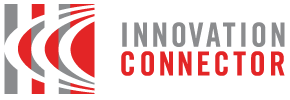Entrepreneurs: Truth, Myths, Uncertainties
By: Ted A. Baker, CEO/Executive Director, Muncie Innovation Connector, Inc.
As the Innovation Connector continues to spotlight entrepreneurs in the Muncie community during 2022, it is crucial to understand who entrepreneurs are, what makes them do what they do, and how they are an integral part of the business ecosystem? I have worked with hundreds, maybe even thousands, of individuals who claim to be entrepreneurs. Last month I wrote about the origins of entrepreneurship and submitted that an entrepreneur is “one who undertakes a new venture.” While this is a broad definition, it does cover the wide range of the experiences of people I work with daily. According to the Conference on Entrepreneurship, USA, the scope of entrepreneurship narrows to:
“Entrepreneurship is the attempt to create value through recognition of business opportunities, the management of risk-taking appropriate to the opportunity, and the communicative and management skills to mobilize human, financial and material resources necessary to bring a project to be fruitful.”
Keywords to point out in this definition include attempt, create value, business opportunities, risk-taking, and fruitful. I tend to think the correct definition lies somewhere in the middle, and we can recognize there are aspects of being an entrepreneur that are often misunderstood and cause confusion. Here are a few myths that I have encountered over the years.
- Entrepreneurs are extreme risk-takers and would resemble a Las Vegas gambler putting an entire life’s savings on “black” with the hopes of doubling the retirement fund. While some entrepreneurs display risky behavior, best practices indicate that successful entrepreneurs are “calculated risk-takers.” Research and validation should be part of any pre-startup business routine. Is my product/service needed in the marketplace? Will others spend money to buy it? Who is my ideal customer or market demographic that my product/service is trying to reach? An entrepreneur can alleviate much risk before launching the business by answering these questions and more. Are there risks with starting a business? Yes, of course? But by understanding proper risk management, an entrepreneur will not needlessly waste funds or take valuable time away from the development process.
- Entrepreneurs are rich. I am not rich so I cannot start a business. We can easily debunk this myth by observing those you know who have started a business. Rarely in my years of experience helping entrepreneurs, there have only been a few who have not needed some financial assistance or startup capital. When presenting or teaching on this topic, I explain it this way:
“If you ask 100 entrepreneurs what they need the most, 99 will immediately (and without any hesitation) say, MONEY! The one who did not respond this way wasn’t paying attention or did not hear the question.”
Sure, funds are needed to start or grow a business, but I have worked with many entrepreneurs who have started with very little cash and then figured out ways to make their business work. This method, often called “bootstrapping,” can be challenging and rewarding at the same time. Having cash can make things easier, but starting with little cash forces the entrepreneur to stay focused on the business and take care of details that matter the most.
- I have a business idea and a passion for starting a business – this will be easy!
There is definitely nothing easy about starting or growing a business. Being an entrepreneur is difficult. While having a good business idea is essential, being an entrepreneur entails understanding and executing nearly every aspect of business ownership. An entrepreneur must have a solid knowledge of the product/service, the market, marketing aspects, customer service, accounting, human resources, and more. Simply said, just because you are a skilled mechanic does not qualify you to be an entrepreneur or business owner. I have started and grown several businesses. And while I eventually was able to surround myself with capable team members, it was my ultimate responsibility to execute the business plan. Being successful or failing rested solely on my shoulders.
We can talk about other entrepreneurial myths, but I think the three I have shared are very important. I have worked through these myths with many entrepreneurs. While there are risks involved when starting a business, and available cash can be challenging, or the road might not be easy, it is important to understand that these issues are some of the very reasons that make entrepreneurs who they are. In next month’s article, we will interview two local entrepreneurs who have walked different journeys and yet still are successful.
If you want to know more about how to start a business or learn what the Muncie Innovation Connector can do to help you along this journey, don’t hesitate to get in touch with our office (765-285-4900) to arrange a time to meet. Our community is fortunate to have excellent services to help existing businesses and business startups. Please remember, you don’t have to take this journey on your own.
Ted A. Baker
